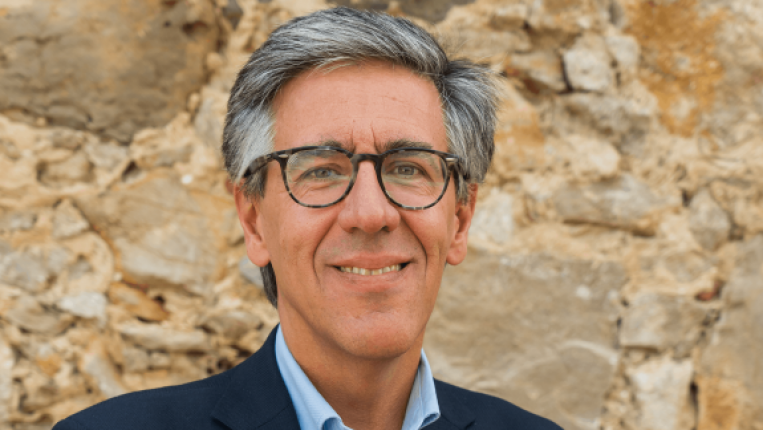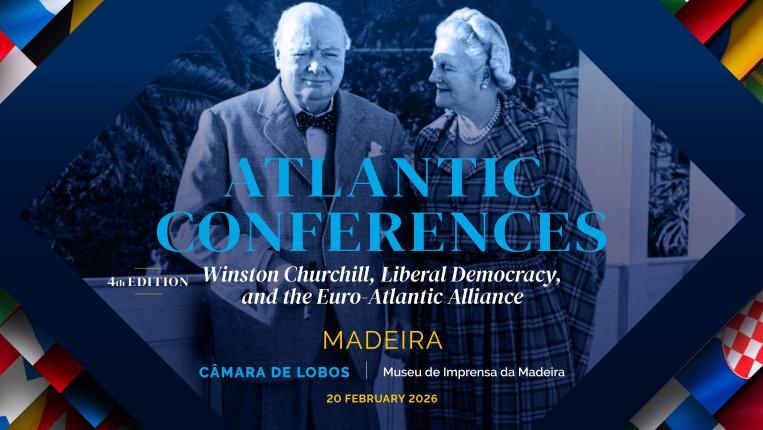Publications resulting from IEP’s projects and events:
International Meetings in Political Studies (Est. 1993):
Confronting the Authoritarian Challenge
30th Annual Edition
27-29 June 2022
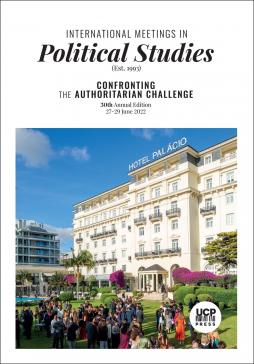
International Meetings in Political Studies (Est. 1993): Confronting the Authoritarian Challenge
30th Annual Edition
27-29 June 2022
International Meetings in Political Studies (Est. 1993)
From Arrábida to Estoril through Sintra and Cascais
Vol. I 1993-2005
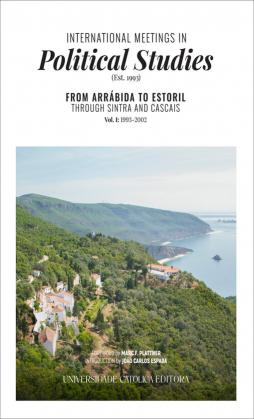
Coordination: Ana V. Martins
Preface: Marc F. Plattner
Edited by Universidade Católica Editora
The first volume of a three-volume edition on the International Annual Meetings in Political Studies. This first volume – which is available at the IEP – covers the first 10 editions, from 1993 to 2002.
Alexis de Tocqueville Annual Lecture 1998-2018
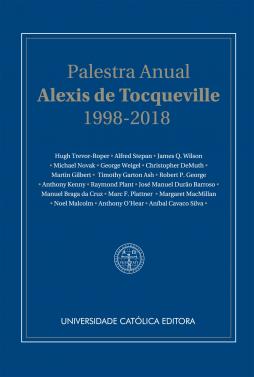
Coordination: Ana V. Martins
Preface: João Carlos Espada
Edited by Universidade Católica Editora
This book is possibly one of the most emblematic expressions of the academic project that the Institute of Political Studies of the Portuguese Catholic University (IEP-UCP) has sought to promote since its foundation in 1996/97.
Basically, it brings together the Annual Alexis de Tocqueville Lectures that were started in 1998. They are solemn ceremonies of diplomas, preceded by a lecture by a distinguished guest speaker, followed by formal dinner.
Tocqueville's speakers include speakers and academics as well-known as Alfred Stepan, Sir Anthony Anthony, Christopher DeMuth, George Weigel, Lord Dacre, Hugh Trevor-Roper, James Q. Wilson, José Manuel Durão Barroso, Manuel Braga da Cruz, Sir, Martin Gilbert, Michael Novak, Lord Raymond Plant, Robert P. George, Timothy Garton Ash, Marc F. Plattner, Margaret MacMillan, Sir Noel Malcolm, Anthony O'Hear and Anibal Cavaco Silva.
The name Alexis de Tocqueville was not, to say the least, a name particularly known among us, but it was and is a name that expresses with particularly elegance and distinction, the project dreamed up by the IEP-UCP: a project of university autonomy, of orderly and quiet defense of freedom, of refusal of what Tocqueville called "sterile conflict between Old Regime and Revolution" or "perpetual oscillation between serfdom and abuse ".
João Carlos Espada
The Democractic Invention
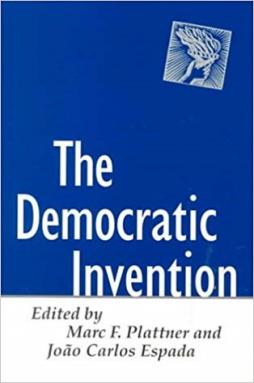
Coordination: João Carlos Espada and Marc Plattner
Edited by Johns Hopkins University Press (Original Edition) // Imprensa de Ciências Sociais, 2001 (Portuguese Edition)
In a lecture series that took place both in Portugal and in the United States, thirteen leading scholars and world leaders reflect upon the significance of democracy as a system of government and its consequences both within individual countries and internationally.
The book is organized into four parts: “The Democratic Prospect” offers broad-ranging global assessments of the recent history and the future prospects of democracy. “Transitions to Democracy” focuses on three specific cases of democratic transition: United States, Portugal and Central Europe. “Beyond and Below the Nation” deals with democracy at different levels. “Religion, Morality, and Belief” examines perennial problems that confront all democratic societies.
The Liberal Tradition in Focus - Problems and New Perspectives
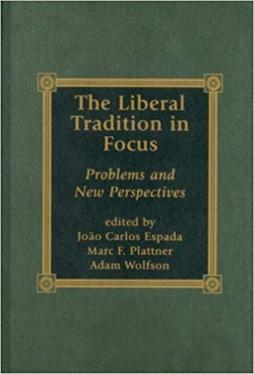
Coordination: João Carlos Espada, Marc Plattner and Adam Wolfson
Edited by Imprensa de Ciências Sociais, 2000 (Original Edition) // Rowman & Littlefield, 2001 (International Edition)
An introduction to the debate whether contemporary academic liberalism, as embodied in the works of John Rawls, Ronald Dworkin, among others, continues the tradition of classical liberalism, namely that of Locke , the Scottish Enlightenment, and the American Revolution.
This research explores the tradition of liberty, the problems it has addressed and the different solutions it has proposed. It took place at the 6th Arrabida Course in Political Theory held in 1998, bringing to Portugal distinguished scholars and encouraging them to interact with the young local community of political theorists, developing a cosmopolitan tradition of political studies.
Sponsored by FCT
Family and Public Policy
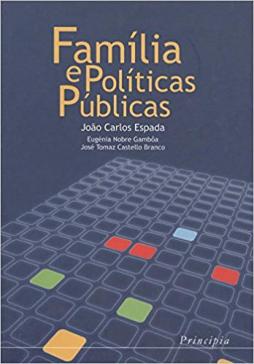
Coordination: João Carlos Espada, Eugénia Gamboa and José Tomaz Castello Branco
Edited by Principia, 2004
A thoughtful presentation of the debate on the individual and social consequences of the erosion of the family in contemporary societies. Introducing the north-American case study, where family structure and the consequences of welfare policies have been studied for longer and more widely debated, the authors approach the Portuguese reality, aware that very similar situations with those of the USA are occurring in Portugal, where research on this theme is still embryonic.
This research results from the commitment of the Christian Entrepreneurs Association to foster investigation on fundamental themes for the development of Portuguese society and finding new ways of civic intervention.
Sponsored by the Christian Entrepreneurs Association of Portugal (ACEGE)
On Wealth and Poverty
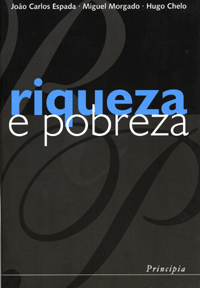
Coordination: João Carlos Espada, Hugo Chelo and Miguel Morgado
Edited by Principia, 2003
A study into how economic growth definitely contributes to the improvement of the opportunities of most people, including the most poor. The richest countries have also been those in which the middle class grew most, therefore lowering the index of inequality and, raising decisively the quality of live of everyone, including the poorest. Wealth is finally not a fixed stock, but a variable flow. For that reason, the key to fight poverty doesn’t reside mostly in the redistribution of the existent resources, but in making the economic flow grow.
Sponsored by the Christian Entrepreneurs Association (ACEGE)
Pluralism Without Relativism: Remembering Sir Isaiah Berlin
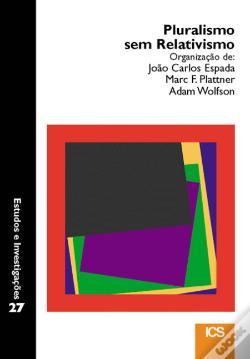
Coordination: João Carlos Espada, Marc Plattner and Adam Wolfson
Edited by Imprensa de Ciências Sociais, 2000
The 1999 Arrabida Course was devoted to the legacy of one of the most influential thinkers of the last half century, Sir Isaiah Berlin, in its different dimensions: The critique of historic determinism, the analysis of the Enlightenment and the Romantic reaction against it, the reflection on the two concepts of liberty between liberalism and totalitarianism, the concept of pluralism and its (often overlooked) contrast with relativism.
Remembering and discussing Sir Isaiah’s intellectual legacy, one is remembering and discussing the political, moral and philosophical foundations of western democracies, as welll as the main central conflict which has oppposed them to totalitarianism throughtout the 20th century.
Sponsored by FCT
Contemporary Political Thought: An Introduction
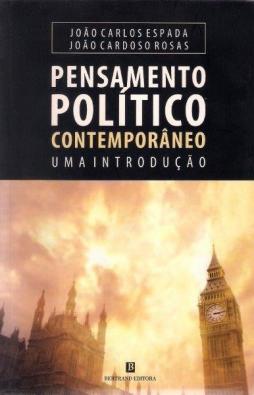
Coordination: João Carlos Espada and João Cardoso Rosas
Edited by Bertrand Editora, 2004
This work gives an overall vision of the development of contemporary Political Theory. Each chapter presents the thought of a relevant contemporary political philosopher and provides basic bibliographic references. The researchers and co-authors are all former students of the organizers and almost all of them were Institute students. It is a pioneering study in the Portuguese academic world, of particular use to students, professors, scholars and political actors.
Sponsored by FCT


